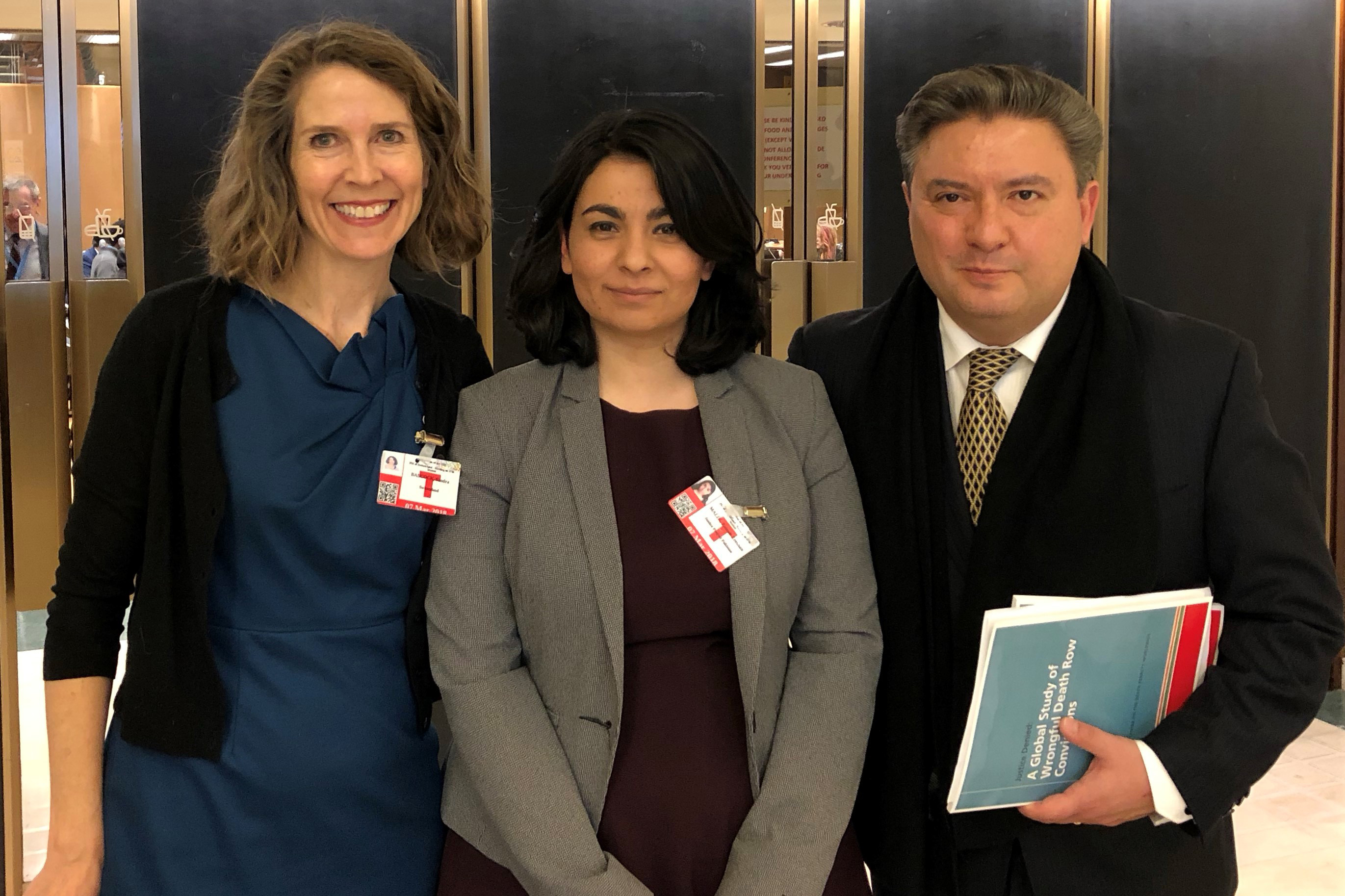This website uses cookies
We use cookies to ensure that we give you the best experience on our website. If you continue to use this site we will assume that you are happy with it.
On March 7, 2018, the Cornell Center on the Death Penalty Worldwide launched its new report Justice Denied: A Global Study of Wrongful Death Row Convictions at the United Nations in Geneva, Switzerland. The first-of-its kind report exposes systemic factors that increase the likelihood of wrongful convictions through the lens of case studies from six countries across the geographical and political spectrum: Cameroon, Indonesia, Jordan, Malawi, Nigeria, and Pakistan. The case studies, brought to light by in-country partners, focus on cases in which all available evidence indicates that the defendant was factually innocent of the charged capital crime.
The report emphasizes that although at least sixty condemned prisoners were exonerated in 2016 alone, the actual number of innocent persons on death row is far greater. Prisoners’ lack of access to the courts results in vast underreporting of wrongful convictions, concealing the extent of the problem from political leaders and average citizens alike.

Professor Sandra Babcock, Zainab Malik, and Joaquin Jose Martinez in Geneva, Switzerland for the report’s release. Babcock is clinical professor of law and faculty director of the Cornell Center on the Death Penalty Worldwide. Malik is head of Policy and Advocacy at Justice Project Pakistan. Joaquín José Martínez is a death penalty activist and death row exoneree who was wrongfully convicted and sentenced to death in Florida.
Speaking from Geneva, Faculty Director Sandra Babcock said, “This groundbreaking report underscores that every legal system is prone to error. States can reduce the risk of error by ensuring that each person facing the death penalty receives a well-trained and adequately funded defense lawyer. But there is no way to entirely eliminate the risk that an innocent person will be sentenced to death.”
Prisoners’ lack of access to effective legal counsel stands out as one of the most salient factors leading to wrongful conviction. In every jurisdiction studied, lack of training, experience, and resources prevent lawyers from providing competent representation to people facing the death penalty. In Cameroon, for example, terrorism defendants facing the mandatory death penalty are most often represented by trainee lawyers who have yet to pass their qualifying exams and have no criminal defense experience.
The report’s case studies illustrate the grave consequences of bias and error in the criminal justice system. After a December 2014 terrorist attack, Pakistan resumed executions, hanging 332 people in 2015 alone. One of those people was Aftab Bahadur. Aftab found himself on death row at fifteen or sixteen years old, convicted of killing a politically-connected woman and her two sons. Though all available evidence indicates Aftab was innocent, falsified forensic evidence and testimony procured through police torture served as the basis for his arrest, and ineffective counsel and expedited terrorism court procedures ushered him to a quick conviction. As Aftab’s execution date approached, the head prison warden rallied against his hanging. A witness against him, recanting his testimony, begged for Aftab’s life to be spared. Their pleas went unheeded. Aftab was executed on June 10, 2015. He had served twenty-two years in prison.
This report aims to show political leaders and citizens how wrongful executions like Aftab’s can be prevented while recognizing that “any state that applies the death penalty will inevitably sentence innocent people to an irreversible punishment.” For that reason, the report concludes, “the best way to prevent the executions of innocents is to abolish the death penalty altogether.”
Read the full report here or watch a recording of the report launch in Geneva here.
The Cornell Center on the Death Penalty Worldwide specializes in research, advocacy, and training on issues surrounding the death penalty.